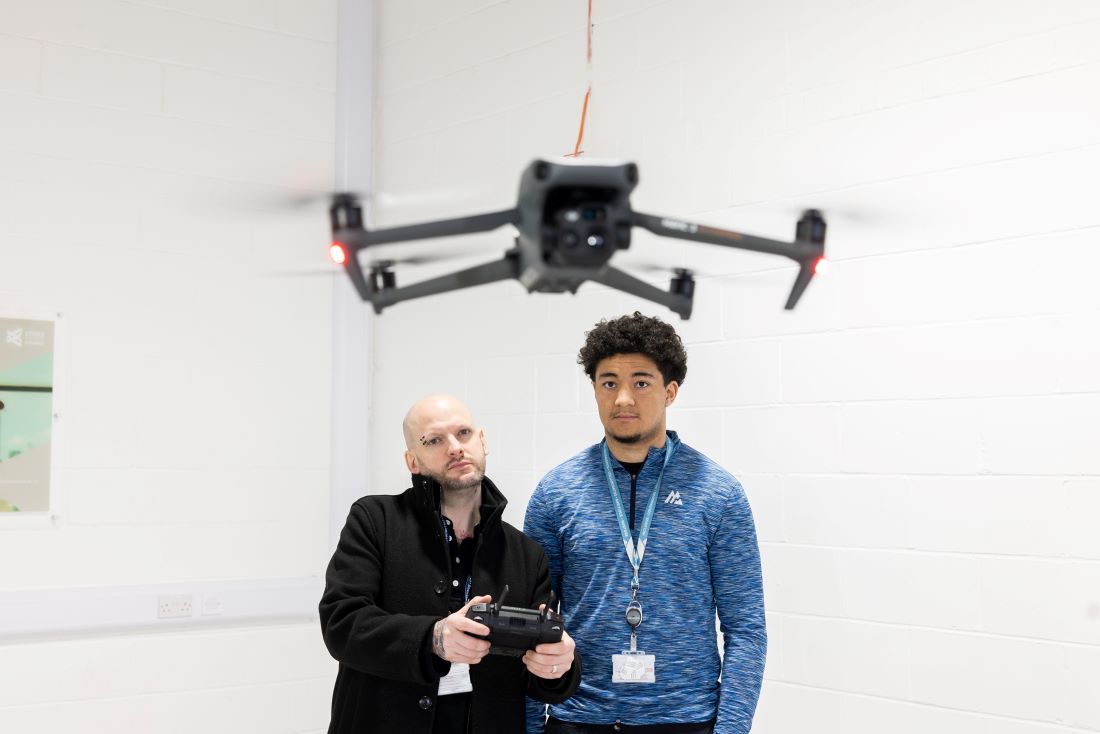How will the DfE’s Sustainability and Climate Change Strategy affect your organisation?

The first two articles in my trilogy reviewing the Department for Education’s (DfE) Sustainability and Climate Change Strategy looked at the strategy’s highlights and its omissions. In this final instalment, I’ll explore what the implications of the strategy are for you, your colleagues and the organisations you work for.
While the strategy doesn’t immediately commit further education (FE) and training providers to any specific actions, there are indications of what’s to come – both in terms of support, and expectations. This article aims to help those developing sustainability strategies, plans and activities, so they can align with the DfE’s approach.
Geographical scope
First, it’s worth noting the scope of the strategy. The Government and the devolved governments in Northern Ireland, Scotland and Wales are all committed to climate action, and to working together in this field. However, the targets and aims set out in this strategy relate to the education system in England, so anyone working outside of England will need to refer to their respective government’s policies and strategies.
Professional development opportunities
To teach about sustainability, educators need to be adequately equipped. We know from the Level 5 learning and skills teacher occupational standard (revised last year) that new teachers training through an apprenticeship route will be able to integrate sustainability into their teaching, through modelling sustainable practices and promoting sustainable development principles in relation to their subject specialism.
The DfE’s strategy does not extend this model to include existing teachers or those training through other routes, but there are signals that educators will have opportunities to engage with sustainability through continuing professional development (CPD) in future. For example, science teachers will have access to CPD to ensure all young people receive high-quality teaching on scientific facts about climate change and environmental degradation. More broadly, all staff will be able to build their understanding of climate change and sustainability through carbon literacy training. Educational activities will also be provided for teachers to learn about energy efficiency, the circular economy, climate resilience and green careers as part of educational building, maintenance and procurement projects.
The ETF and the Society for Education and Training (SET) are supporting this work through the inclusion of ESD in the recently updated professional standards and by providing a range of different tools, resources and CPD for existing educators in the sector.
Green jobs and skills
With the strategy aiming to prepare learners for green jobs, education providers will need to build their capacity to teach green skills and to provide relevant careers information and advice.
When it comes to apprenticeships, the Institute for Apprenticeships and Technical Education’s (IfATE) Green Apprenticeships Advisory Panel is ensuring occupational standards align with net-zero objectives and broader sustainability goals. This means providers will need to work with employers to ensure their apprentices are developing knowledge, skills and behaviours (KSBs) relevant to both the sustainability agenda and their occupation. IfATE’s work will also influence the sustainability content within T Levels and higher technical qualifications in future.
Broader support will be provided to ensure people are aware of the full range of training and careers available to them through careers information, advice and guidance. Skills Bootcamps will continue to grow with new offers to enable adults to upskill and retrain in key green sectors. This could encourage providers to expand their specific sustainability training offers (alongside work to embed sustainability across their portfolio). This is linked to the government’s Free Courses for Jobs offer, the eligibility criteria for which has recently widened and includes qualifications linked to green sectors such as agriculture, building and construction, engineering and forestry.
The Local Skills Improvement Plans (LSIPs), brought in through the Skills and Post-16 Education Bill, must include the local skills needed to help deliver on our net-zero target, adaptation to climate change, and other environmental goals. Providers will need to work with their local Chamber of Commerce and other stakeholder groups to identify current and future skills needs and produce plans to develop these locally.
Buildings and operations
Beyond the curriculum, FE providers will need to take action to improve the sustainability of their buildings and operations. By 2025, all education settings will have a nominated sustainability lead and Climate Action Plans. These plans will likely sit alongside a new framework to be published by 2024, supporting the standardised reporting of carbon emissions across the sector. After 2025, the DfE will publish targets and institutional progress for the further and higher education sectors, making this data publicly available.
The DfE’s specifications for new buildings set out low-carbon, climate-resilient standards and should be used by providers undertaking capital projects. Education providers will be encouraged and supported to procure from organisations that have committed to, and have a plan in place to, achieve net zero by 2050.
Any providers planning on applying to the Further Education Capital Transformation Programme will now have their bids assessed for carbon impact and will be expected to use nature-based classrooms and ensure designs positively impact on physical and mental wellbeing. In future all bids for capital funding will need to consider environmental impact, include carbon reduction and adaptation measures, and align with the government’s targets and objectives.
By 2030, it’s expected biodiversity will have significantly increased on the education estate with ‘Green Corridors’ established between education settings, to protect and enhance wildlife and ecosystems. Providers can also pursue this with their local authorities and geographic neighbours.
Providers will also be encouraged to undertake a wealth of initiatives: eradicating single-use plastics and encouraging the use of reusable and recyclable materials by 2025; sourcing food locally where possible; gathering data and taking action on food waste; reducing all waste; promoting the circular economy; reducing indoor and outdoor air pollution; and rationalising deliveries.
Taking the first step
The precise manner of what ‘support and encourage’ looks like is still to come, but for providers wanting a head start, it’s useful to know what the DfE’s priorities are.
There are a number of initiatives that sector providers will be able to engage with. The flagship elements of the strategy include the Climate Leaders Award, which will recognise learners’ leadership and contributions to sustainability, and the National Education Nature Park, which will involve learners in measuring and improving biodiversity in their education setting, helping reinforce a connection with nature. Further information about how sector providers can engage with these programmes is expected once the DfE has selected its delivery partners.
The ETF endorses a whole-organisation approach to sustainability – this gives providers multiple opportunities to progress and hardwire ESD work. The Climate Action Roadmap for UK FE Colleges is a great place to start. If you’re not from a college, it still provides an overview of how sustainability can be embedded across your work, and how to put this into practice.
The DfE has committed to working across the sector to research, test and pilot new ideas to ensure the strategy has the greatest impact. The strategy will be updated annually, so watch this space for more detail and nuance about expectations for your people, teaching, partnerships and operations.

This is our final article of a 3-part series!











Responses